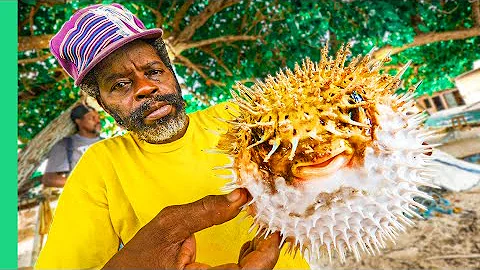Sour, sweet, bitter, spicy, and salty. If you have to choose one that is unique among them, the editor will definitely choose spicy.
Spicy is "A's honey, B's arsenic". Some people don't like spicy food and would like to add a few chili peppers to the stir-fried cabbage. Just one spoonful of chili sauce can eat two bowls of rice. It's a good thing for some people to avoid it. As long as a dish has a hint of spiciness, you can avoid touching it for the entire meal. Of course, there are also many people who continue to enjoy hot pot and skewers while enjoying the spicy food.

Different people have different opinions on whether eating spicy food is good or bad. Some people say that spicy food is good! Spicy and refreshing, the whole person gets excited! Some people say, isn’t it? It’s already so hot in the mouth, and it’s even more sour when going to the toilet the next day. It should burn the intestines and stomach when eaten~~!
Are these statements based on personal opinions, or do they have scientific basis? The editor specifically consulted experts for this purpose.
As for the results...
At noon on the day after the interview,
the editor ordered a bowl of Tom Yum Seafood Udon, and
basically drank all the soup.

Sour, sweet, bitter, salty:
Spicy, you are not the same as us!
Among the five flavors that people call sour, sweet, bitter, spicy and salty, spicy is indeed the most different one.
Because strictly speaking, it is not a taste, but a feeling, even pain ...

A powerful young and middle-aged doctor, chief physician of the Department of Gastroenterology, Guangzhou First People's Hospital Zhou Yongjian introduced,
"Spicy" "In fact, it is the spicy and stimulating feeling caused by certain compounds present in seasonings and vegetables.
It does not belong to taste.
This special feeling is because chili peppers are rich in capsaicin
which stimulates the chili pepper in the human mouth. The hormone receptor,
activates the pain nerve conduction pathway, and
stimulates the tongue, oral and nasal mucosa to produce spicy, stinging, and burning physiological sensations.
These are not the only mucous membranes that can produce a "spicy" feeling. If you don’t believe it, wipe your eyes with a paper towel wiped with spicy crayfish juice,

or experience it carefully when you defecate the next day after eating spicy food...
Zhou Yongjian said that
naturally edible spicy substances are based on their taste. Different,
can be roughly divided into the following three categories:

(1) Hot substances: Hot substances are non-aromatic spicy substances that can cause a burning sensation in the mouth. Such as hot pepper, pepper, Sichuan peppercorns, etc.
(2) Spicy (aromatic spicy) substances: The spiciness of spicy substances is accompanied by strong volatile aromatic substances. Such as ginger, cloves and nutmeg.
(3) Pungent and spicy substances: Pungent and spicy substances can not only irritate the tongue and oral mucosa, but also irritate the nasal cavity and eyes, and have tear-inducing effects. Such as: mustard, radish, horseradish and disulfide compounds, etc.
The spicy taste has the function of increasing appetite and promoting the secretion of digestive juices in the human body, which has been confirmed by gastroenterologists.

However, whether a person can eat spicy food or whether he likes spicy food is inseparable from the environment and his own genes.
The soil and water support the people. The development of spicy eating habits of people in Sichuan, Hunan and other places may be related to their geography and spicy eating environment. After being exposed to chili peppers from childhood, the human body can gradually adapt.
Some people are born with more capsaicin receptors and are relatively more sensitive to spicy food and are less able to eat spicy food; while some people have low expression of capsaicin receptors or have genetic mutations that greatly reduce capsaicin receptor activity. , have a higher tolerance to capsaicin, and become more tolerant of spicy food.
It turns out that as a Cantonese, the reason why I can tolerate spicy food is because of a genetic mutation~? !
Chili is a good thing
Whether you are on the side of spicy food or not, it does not hinder the fact that chili is a good food.
Chili peppers are rich in various vitamins, including vitamin A, B vitamins, vitamin C, vitamin E, vitamin K, carotene, folic acid, etc., as well as minerals such as calcium and iron, and dietary fiber.
It has a stimulating effect on the oral cavity and gastrointestinal tract, can enhance gastrointestinal motility, promote the secretion of intestinal digestive juices, promote the release of prostaglandin E2 in the human body, improve appetite, and inhibit abnormal intestinal fermentation.
More importantly, spicy food can make people happy.
When we eat chili peppers, our taste buds will be stimulated and cause pain. In order to relieve this kind of pain, the brain secretes a substance called "endorphins". This substance can not only suppress pain, but also help us feel happy and relieve stress.

Sweets that are often used to "cure" unhappiness, although they stimulate the secretion of dopamine in the brain, do not bring about real happiness. It simply activates the reward system in your brain, causing you to crave sugar and act on it.
So, if a bowl of sugar water can’t solve the problem, maybe two bowls can’t solve it…but a spicy meal can!
Compared with sugar, spicy food is much less harmful to the body! The premise is not to use heavy oil and salt at the same time.
Spicy food is less harmful to the human body than many people think.
Don’t believe it? Continue reading...
Don't blame chili peppers for acne.
Some people say that eating spicy hot pot will make people unhappy...
Wait, who said eating spicy food will cause acne? According to current medical evidence, chili peppers do not have acne-causing properties.
High-sugar foods and dairy products have been clinically proven to have clear acne-causing properties, and the omega-6 fatty acids in fat can also trigger inflammatory reactions.
Therefore, eating spicy hot pot with fat sheep and beef, and drinking too much Sugary drinks and the steaming fumes from hot pot (which promote oil in the skin) are the real reasons why you get acne after eating hot pot!
It sounds reasonable, right?
Normally eating spicy food will have little impact.
As for the many people are worried that eating spicy food will affect the gastrointestinal tract, Zhou Yongjian told Youyuejun that chili peppers with normal spiciness of and have little impact on the normal human body. of.
Although chili peppers can enhance gastrointestinal motility and promote the secretion of intestinal digestive juices, eating chili peppers may cause diarrhea, abdominal pain and other reactions.
But in terms of long-term effects, people who eat spicy food for a long time are basically not more likely to suffer from gastrointestinal problems than people who do not eat spicy food. "Sichuan people are very bad at eating chili peppers, and Hunan people are very bad at eating chili peppers, but the incidence of gastrointestinal diseases is lower." , it’s similar to Guangdong, and it’s in the middle of the country.”
Before meeting up with friends to eat spicy hot pot, Zhou Yongjian reminded everyone that there are still two things to pay attention to.
First, the spiciness should be within the range that you can bear. "Originally I am a person who can eat spicy food, but once when I was eating in the United States, I encountered Mexican peppers. I couldn't put them in my mouth. Not to mention the peppers, I couldn't eat the beef in the same dish. It was so spicy."
二Some people with abnormal physiques, especially those with underlying gastrointestinal diseases, should eat chili peppers with caution. For example, for people suffering from hemorrhoids, chronic cholecystitis, gastritis, gastric ulcer or poor gastrointestinal function, eating spicy food can induce or aggravate the disease. Because too much capsaicin will severely stimulate the gastrointestinal mucosa, causing it to be highly congested, accelerate peristalsis, cause stomach pain, abdominal pain, diarrhea, and anal burning and stinging pain, induce gastrointestinal diseases, and promote hemorrhoid bleeding; increase cholecystokinin The production of bile duct orifice sphincter is tense, bile outflow is not smooth, and gallstones and chronic cholecystitis are aggravated.
What is the best way to relieve spicy food?
Spicy is a feeling or even pain.
What is the best way to relieve spicy food?
According to Dr. Ding Xiang,
someone organized a comparison of more than 20 volunteers and found that
ice water is better than water at room temperature in relieving spiciness,
drinking alcohol is less effective in relieving spiciness.
Milk has a much better anti-spicy effect.
Eating sugar can also relieve spicy food.
So to sum up,
iced whole milk with sugar added is the "King of Spicy Relief".
(Eh? But high-sugar foods and milk can cause acne-_-)
Text/Guangzhou Daily All-Media Reporter Wu Ren





















